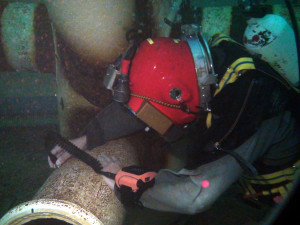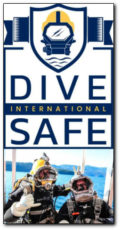New changes in Ontario diving regulations NOW in effect.
By CADC Admin ~ March 4th, 2014. Filed under: Latest Diving News, Standards and Regulations.
The official CHANGES in the Ontario Diving Regulations have been posted on the MOL website. The new regulations become law on March 1st 2014.
The online link is: http://www.e-laws.gov.on.ca/html/regs/english/elaws_regs_940629_e.htm#
CADC has uploaded a PDF copy of the changes in for offline viewing HERE.
The executive director of CADC took issue with the procedure by the MOL requesting comments on the proposed changes in that the proposed regulation changes appeared NOT to be posted on their website and were taken down prior to the deadline. Public comment was therefore stymied in that there were no proposed changes available to comment on.
The changes have become law effective March 1st., 2014.
The amendments were to bring the regulation into alignment with current industry standards. The proposed amendments would:
- harmonize definitions with Canadian Standards CSA Z275.2-11
- align regulatory requirements with CSA Standards for:
- stage and open (wet) bells
- safe entry into and exit from water surfaces
- strength requirement for a diving harness and lifelines
- gauges
- metering equipment
- bailout system
- compressor and associated equipment
- open circuit SCUBA (self-contained underwater breathing apparatus) equipment
- oxygen supply system
- minimum crew when using a submersible compression chamber or atmospheric diving system
- hazardous underwater mechanisms
- shorten non-saturation deep diving rest period from 24 hours to 18 hours
- increase bottom time for depths greater than 165 feet and up to 195 feet from 30 to 40 minutes
Removal of outdated terminology
If approved, the proposed amendments would:
- update existing references to various Standards
- remove the terms “lock-out submersibles” and “submersible compression chamber attendants”
Provide for new work practices
If approved, proposed amendments to the regulation would reflect the new techniques and technologies used by the diving industry. The proposed amendments would:
- create provisions for diving operations involving “UXO” (“unexploded explosive ordnance” or “unexploded military ordnance”) so that divers are trained and work in accordance with CSA Standard Z275.6-11, “Unexploded Explosive Ordnance (UXO) and Munitions Diving”, and provide for the use of SCUBA by police and UXO divers when dealing with explosive devices, per CSA Standards
- provide exemptions for aquarium exhibit divers, from certain equipment and training requirements
- create provisions for the use of an “open (wet) bell” and “man basket”, per CSA Standards
- provide for in-water decompression during liveboating, by ensuring:
- the vessel captain has an adequate view,
- the availability of a hyperbaric chamber on the vessel,
- adequate communication with the diver,
- an adequately buoyant floatation device attached to the diver’s decompression line, and
- limits on the power used by the vessel.
- create provisions for pilots who operate remotely operated (underwater) vehicles (ROVs), to ensure they are adequately trained, have voice communication and monitoring and are protected from electrical hazards and moving parts
- create provisions for sledding operations to ensure:
- a competent vessel captain,
- adequate boat manoeuverability,
- adequate daylight,
- safe water conditions, and
- prevention of the towline becoming entangled in the propeller
- provide for diving supervisory authority over hazardous floating equipment per CSA Standards
Enhance worker safety
If approved, the proposed amendments would:
- enhance provisions to protect divers from encounters with a delta p hazard, in accordance with guidelines published by the Canadian Association of Diving Contractors
- update the means and timing for notification to the Ministry of dive operations, with respect to the use of technology such as cellular phones and electronic means
- clarify the duties of a diver’s tender so that the safety of the diver is ensured at all times, and ensure the competency of a diver’s tender per CSA Standards
- require certification in oxygen administration (emergency training) by the diving supervisor, each diver and a diver’s tender at the dive site







